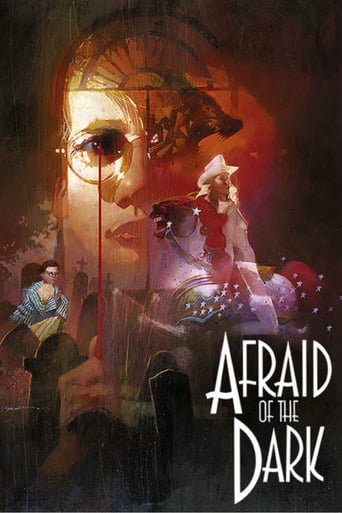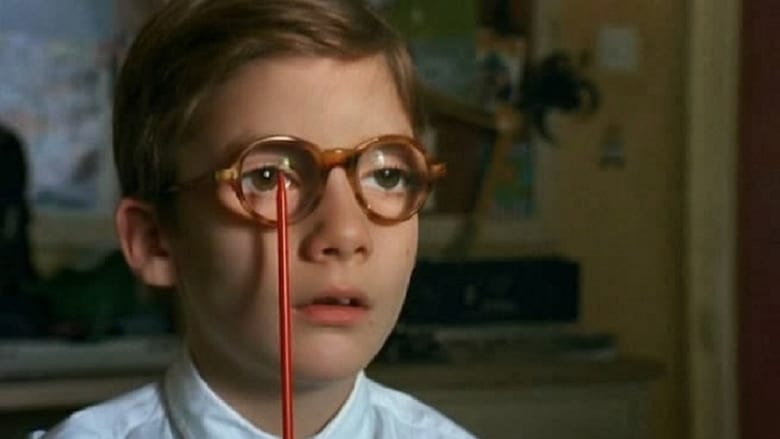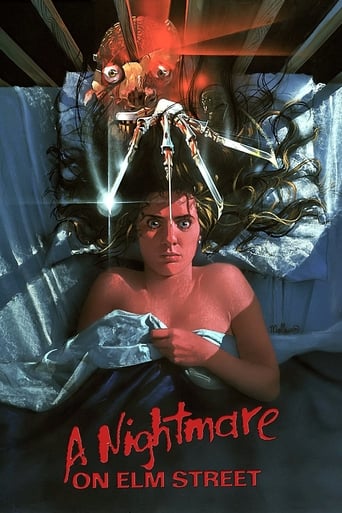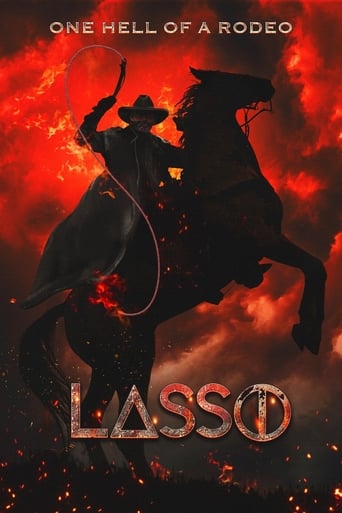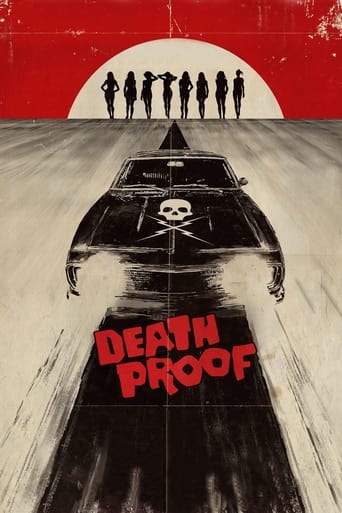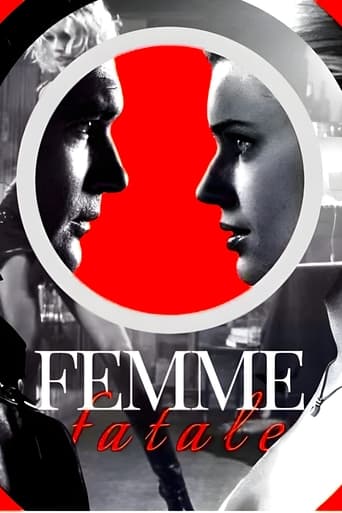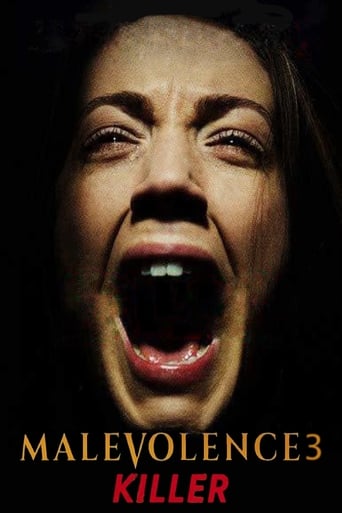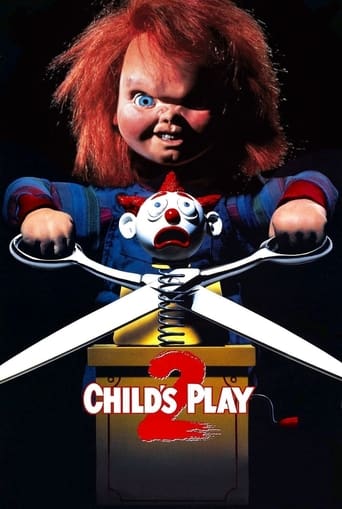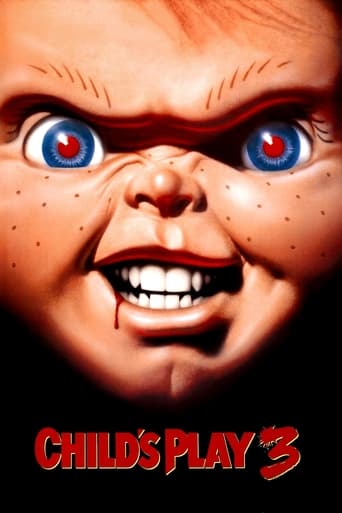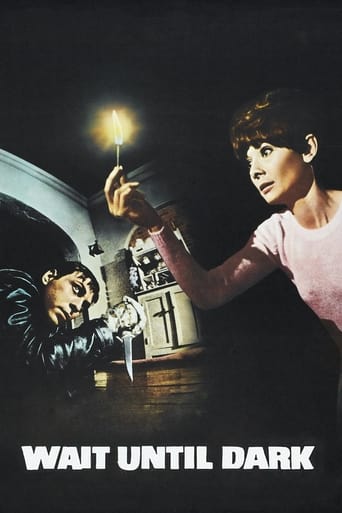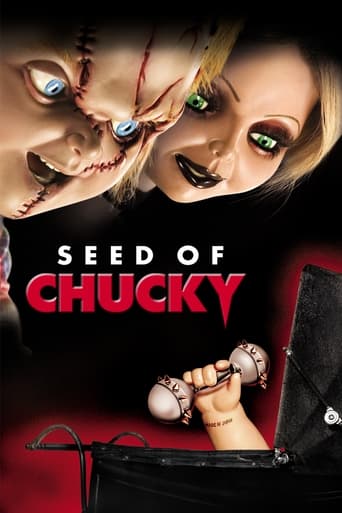Afraid of the Dark (1992)
A little boy, obsessed with blindness and violence, slowly gets trapped in his own delusions.
Watch Trailer
Cast


Similar titles
Reviews
Don't listen to the negative reviews
Blistering performances.
It's simply great fun, a winsome film and an occasionally over-the-top luxury fantasy that never flags.
The movie really just wants to entertain people.
How apt that a story about sight requires some close scrutiny in order to be understood.The real impetus of this movie occurs in the details. Some random examples: *Lucas' name means "light." *The pattern on his pajamas resembles prison stripes, perhaps symbolizing the entrapment and immobility that he fears from impending blindness.*The dual nature of the knitting needle--a)descriptions like 'sharp' and 'penetrating' apply to its function as well as to a person's insightful abilities, and b)the veiled sexual reference of the act of stabbing as a displacement for the impotence Lucas feels, both in losing his sight as well as for the basic powerlessness of childhood.*He sees through a telescope/he calls his knitting needle a telescope...telescopes are supposed to bring the distant object close, but they also fold inward on themselves, a diminution of what they were. They reveal, and then they collapse.*The color blue, mostly missing from the film's palette, is used mainly for tiny details like picture frames (something which contains our visions...rather like Lucas' eyeglass frames contain his actual vision); a cabinet (also something which contains, even locks up, and can withhold its contents from view as opposed to putting them on display); the baby sister's beautiful blue eyes, praised even as Lucas' eyes are ever more distorted through his lenses; the knitting his mother makes for the baby, surely an unusual color for a female infant--but is it really blue or has Lucas completely lost sight of reality by now? Even his demeanor is "blue" as he becomes increasingly more detached, both from reality and from the people and events around him.His detachment is partly a result of his confusion. He can hardly see, and what he thinks he sees, he can't trust. Therefore, his responses to people become odd and then almost nonexistent. For the most part he stops reacting to them. He is in the process of disappearing from his own life. The world is becoming invisible, and so, it seems, shall he.He further detaches from the world around him as people remain blind to his bizarre inner landscape and the worries besetting him. There is a lovely dichotomy in the scene where he is across the street from the wedding crowd. Without his thick lenses, the people appear to be ineffectually stabbing about with canes and dark glasses. When he puts his lenses back on, the people look normal. They can't see when he can't see, but they can when he can. One of his fears is that the world will be as uncomprehending of him as it will be incomprehensible to him, when he is blind.There is also the fear that other senses aren't to be trusted. Notice the scene where Toby is trying to get in the window: the squeeching of the soapy rag against the glass blends with the dog's eager whines until the noises and suds somehow become the signs of a crazed, foaming beast. The deterioration of Lucas' senses and the destruction of what he loves become one and the same.No wonder this is a terrified little boy. And if he can be impelled by his dark visions to kill Toby, whom he loves, what might he do to baby Tess who is, at the very least, an object of ambivalence? Interesting that the name Tess means 'harvester' or 'reap.' To reap is to glean (a common synonym for comprehension, as in "what can you glean from this situation?"). It is to collect, to gather--also terms for pulling oneself together. A harvester is productive, someone who expedites growth (crops in the field) into sustenance (grain for the bread), just as the emergence of baby Tess brings about the full flowering of Lucas' fears, feeding them to the point of his fateful act.Tess is the final catalyst, personifying the loss that Lucas so dreads. He has lost big sister Rose to marriage and eventual motherhood, his parents to their absorption with the baby, his pal Toby is dead, his grip on reality is loosening, and he is losing his vision and with it, his freedom. For all he knows he could even lose his life in the impending eye operation. All this loss solidifies in the diminutive image of Tess. The periphery of his world has narrowed until the only focus is this new little baby who hasn't seen anything yet, and so he takes her. To preserve her? To show her his view of the world? To make her the repository of his last vision? Or for something more sinister? At this point the action is pretty ambiguous. I can't tell what his intentions are, and maybe he can't, either. However, in looking at the clues provided in the names (father Frank, means forthright, let's-be-frank; mother Miriam, biblical namesake protects the boy Moses; sister Rose, roses signify purity, love; brother-in-law Tony, means 'praiseworthy'; Lucas and Tess, lucidity and reaper) I tend to think a positive outcome is intended all along.It is a nice moment at the end when Lucas tells the nurse, "I like to look," whereas before, looking had become a frightful, confusing exercise. He watches her knitting needles as shadow puppets on the wall, but instead of something horrific they are just...knitting needles. Nothing more. Real is real.That's how I see it, anyway. Someone else might have a different interpretation. I have to love a movie that lends itself to alternate views.
Horror movies aren't known for their logic. A killer or monster may definitively die, only to return in the sequel, or maybe even within the same movie.Some will use tricks to go for cheap scares or disorient. Films within the film, a dream, or dreams within a dream may all seem at first to be part of the movie. Angustia AKA Anguish, for example.Others will have events shown the way a character tells or experiences them, perhaps lies or mental illness make them different than what "really" happened. Dr. Caligari or Haute Tension come to mind.This is all by way of saying this is one of those movies. About an hour into the videocassette (less than an hour into the movie), things change. There are some constants, while other things are completely different. This opening segment is framed by two identical shots: of a boy tapping a knitting needle against his eyeglasses.The first part of the movie has a young boy who helps his blind mother, who attends a school for the blind. He follows and watches many of the blind people, and it turns out there is a slasher attacking some of the women, killing some of them too. He observes several likely suspects, sometimes watching through a telescope.Whether people like the movie or not may hinge on how upset they are by how things change for the last part of the movie. Myself, I enjoyed it.
This one can be a bit challenging, but it's well worth the ride. Written and directed by Academy award nominee Mark Peploe. Without including a spoiler it is difficult to describe too many elements of this surprising film. Sufficed to say, as the revelations begin, you can see layers of complexity and psychology that you weren't expecting at the beginning. There are many original things in this movie; not the least of which is numerous interpretations of blindness and helplessness through the eyes of a child. Now that probably makes you recoil - too artsy/fartsy, but I assure you this is a thriller. Genuinely creepy and the young actor Ben Keyworth that plays Lucas is outstanding.
AFRAID OF THE DARK is a very subtle, very off-beat film...as you might expect from the directorial hand of Mark Peploe, who writes screenplays for Bertolucci (THE LAST EMPEROR) and Antonioni (THE PASSENGER). James Fox and Fanny Ardant (as the father and mother) have never been better; David Thewlis and Robert Stephens are deliciously creepy.Viewers expecting anything like a traditional thriller or horror film may be thrown for a loop--in the very best way. Metaphors about blindness and vision are all through the film, providing a kind of layered richness that was more common in the best films of the 1960s (such as Antonioni's BLOWUP). The story is not quite what it appears to be, and the way the film pulls a twist to reveal the "reality" is a stunner!

